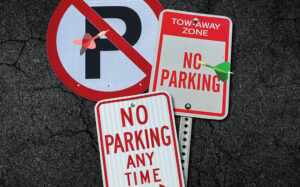LITTLE ROCK, Ark. — The Federal Motor Carrier Safety Administration (FMCSA) has amended Federal Motor Carrier Safety Regulations to increase the area on the interior of commercial motor vehicle windshields where certain vehicle safety technology devices may be mounted.
FMCSA also added items to the definition of vehicle safety technology. The announcement came in an entry into the Federal Register under the Department of Transportation.
The new rules go into effect on May 6.
Under the existing definitions, vehicle safety technology includes fleet-related incident management systems, performance or behavior management systems, speed management systems, lane departure warning systems, forward collision warning or mitigation systems, active cruise control systems and transponders.
The amendments expand the definition of vehicle safety technology to also include braking warning systems, braking assist systems, driver camera systems, attention assist warning, GPS, and traffic sign recognition. Vehicle safety technology includes systems and devices that contain cameras, lidar, radar, sensors and/or video.
Devices with vehicle safety technologies may be mounted:
- Not more than 216 mm (8.5 inches) below the upper edge of the area swept by the windshield wipers;
- Not more than 175 mm (7 inches) above the lower edge of the area swept by the windshield wipers; and
- Outside the driver’s sight lines to the road and highway signs and signals.
“Motor carriers, industry technological manufacturers, and drivers will not incur any new costs associated with this final rule,” according to the Federal Register entry. “Adopting and using windshield-mounted technologies is purely optional. Those who install and use windshield-mounted technologies will experience no added burdens or costs as a result of this rule.”
Adoption of the rule is expected to generate cost savings for both industry and the Federal Government by reducing the overall time burden associated with the exemption request and approval process associated with 49 U.S.C. 31315 and the implementing regulations under 49 CFR part 381. The Agency estimates this NPRM would result in total annualized cost savings of $12,184 and $10,705 at 3 percent and 7 percent discount rates, respectively.
The final changes to current rules can be read here.
Joseph Price has been a journalist for almost two decades. He began in community media in 2005 and has since worked at media outlets in Virginia and Arkansas. He is also a commercial drone pilot and video editor. He hosts a weekly community radio show focused on goth, metal and industrial music that airs Wednesday evenings at 6 p.m. at www.kuhsradio.org.







